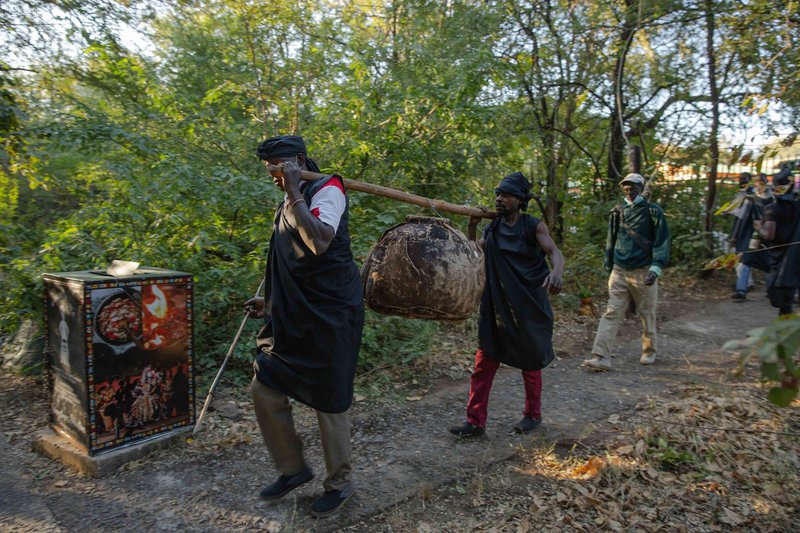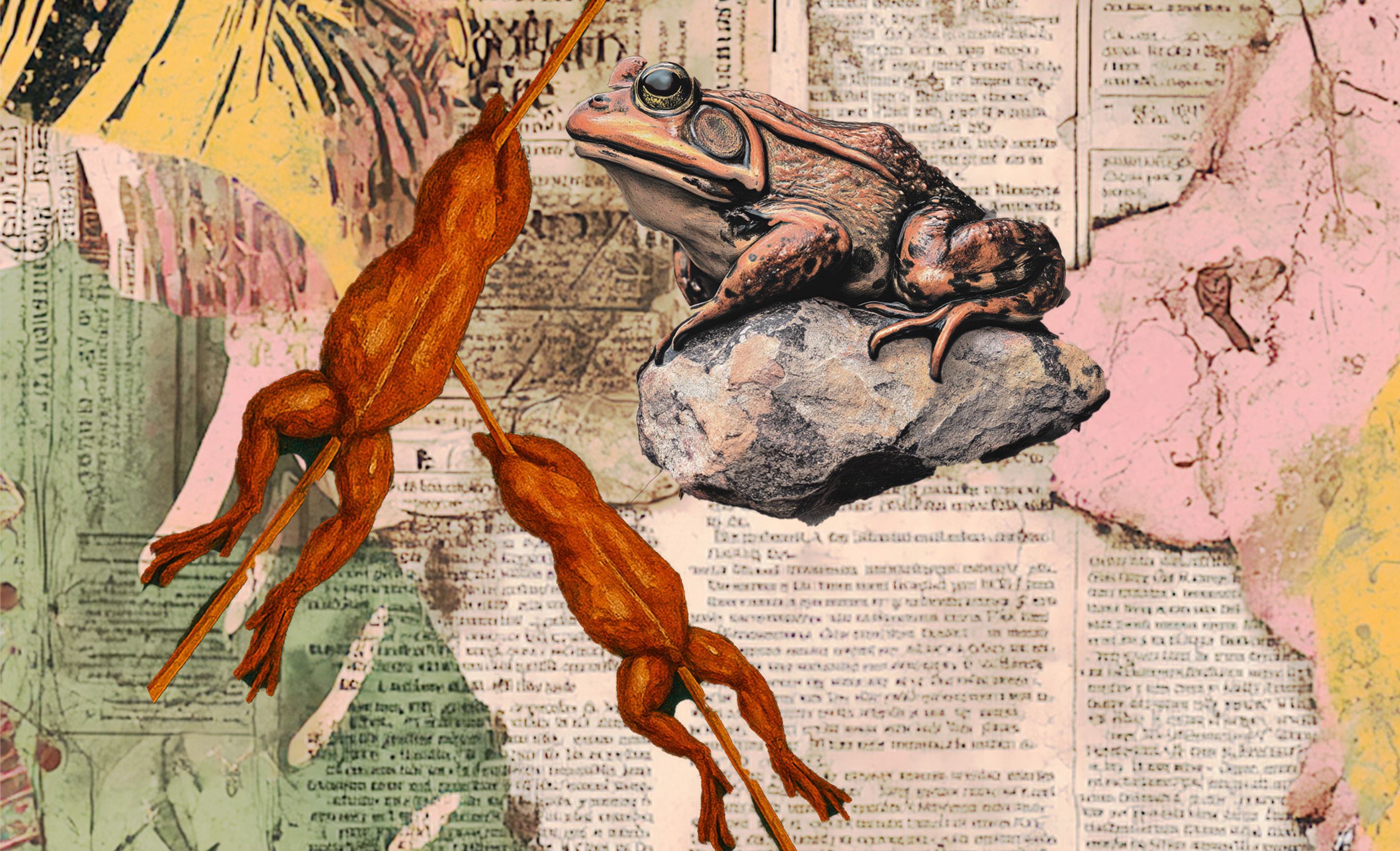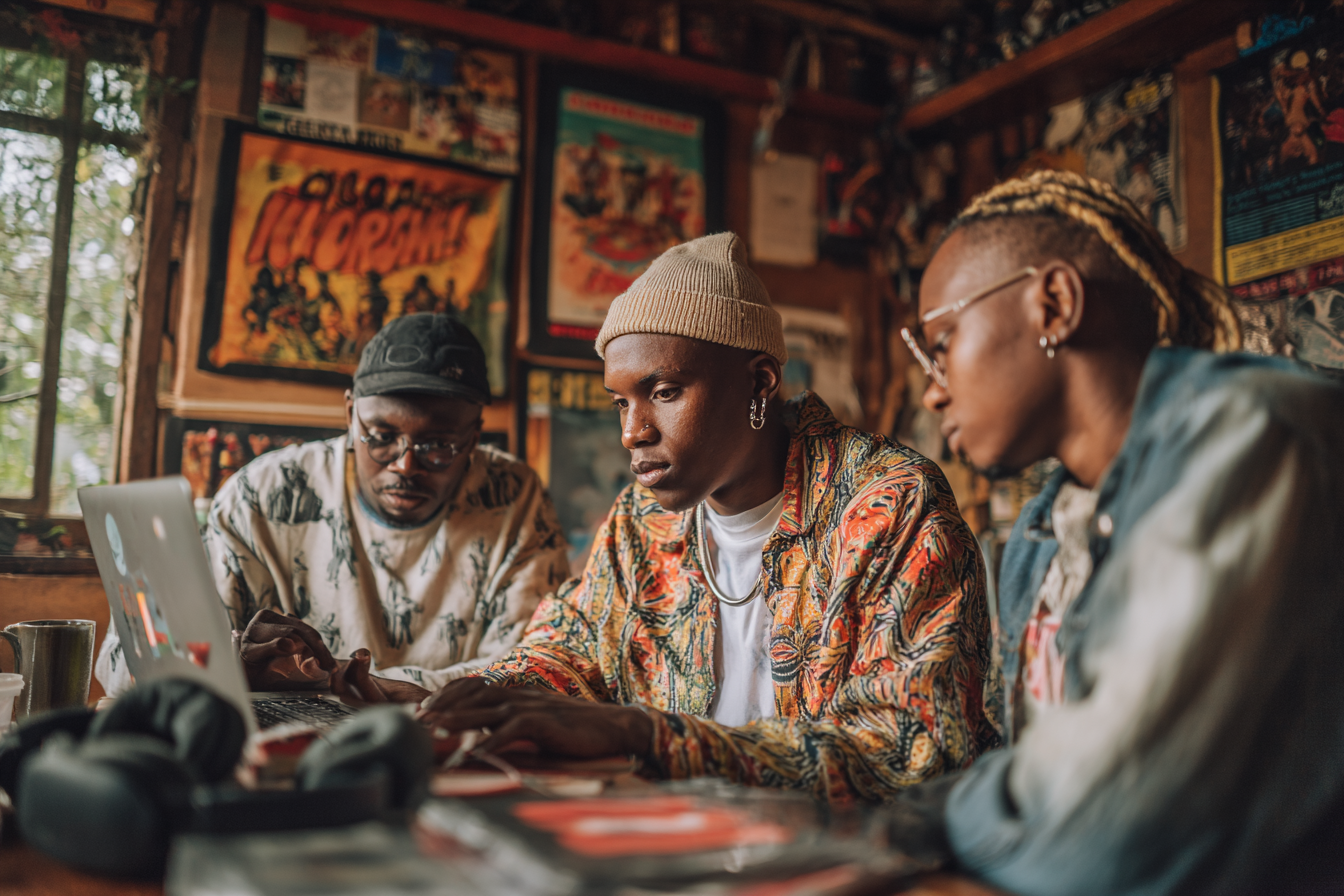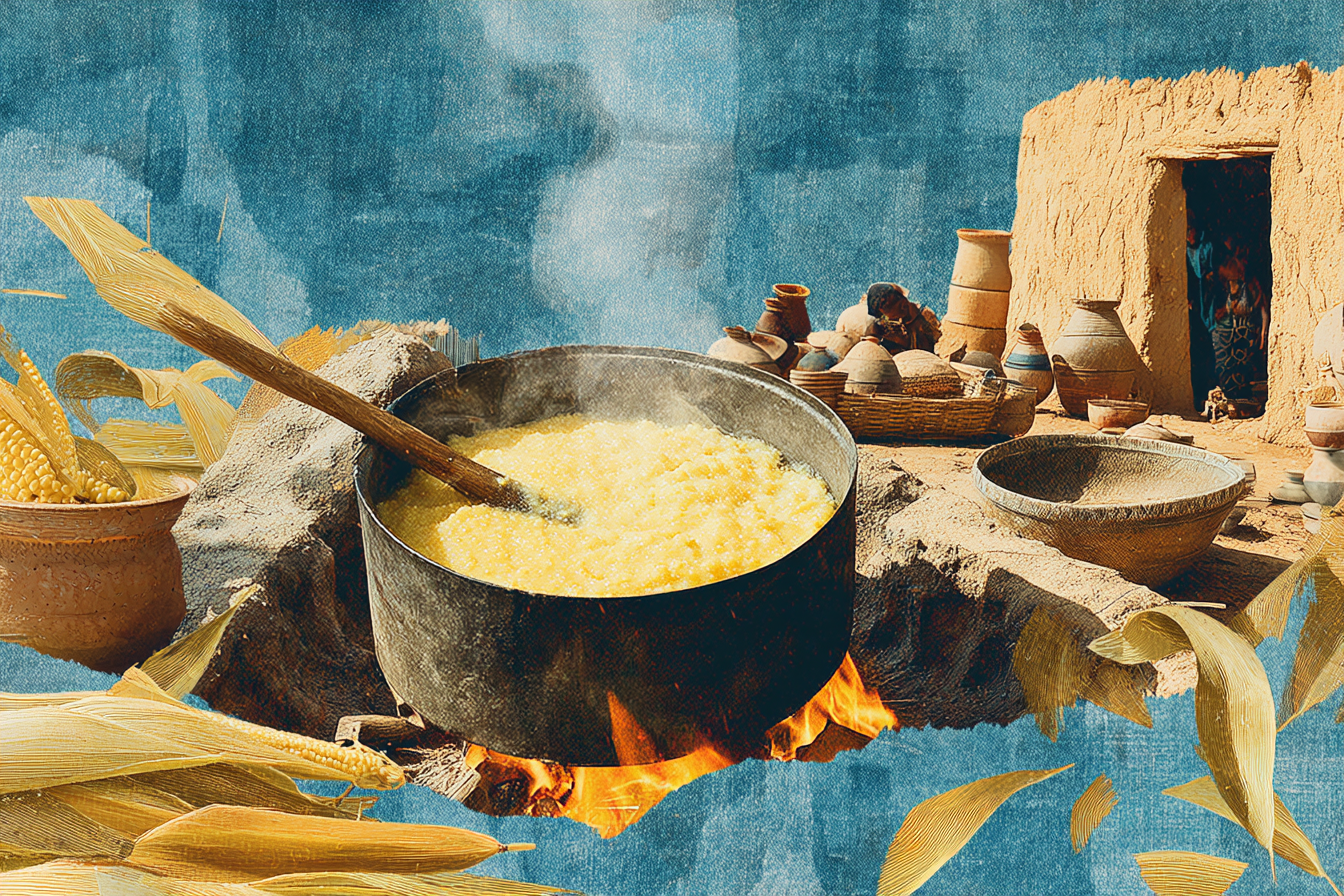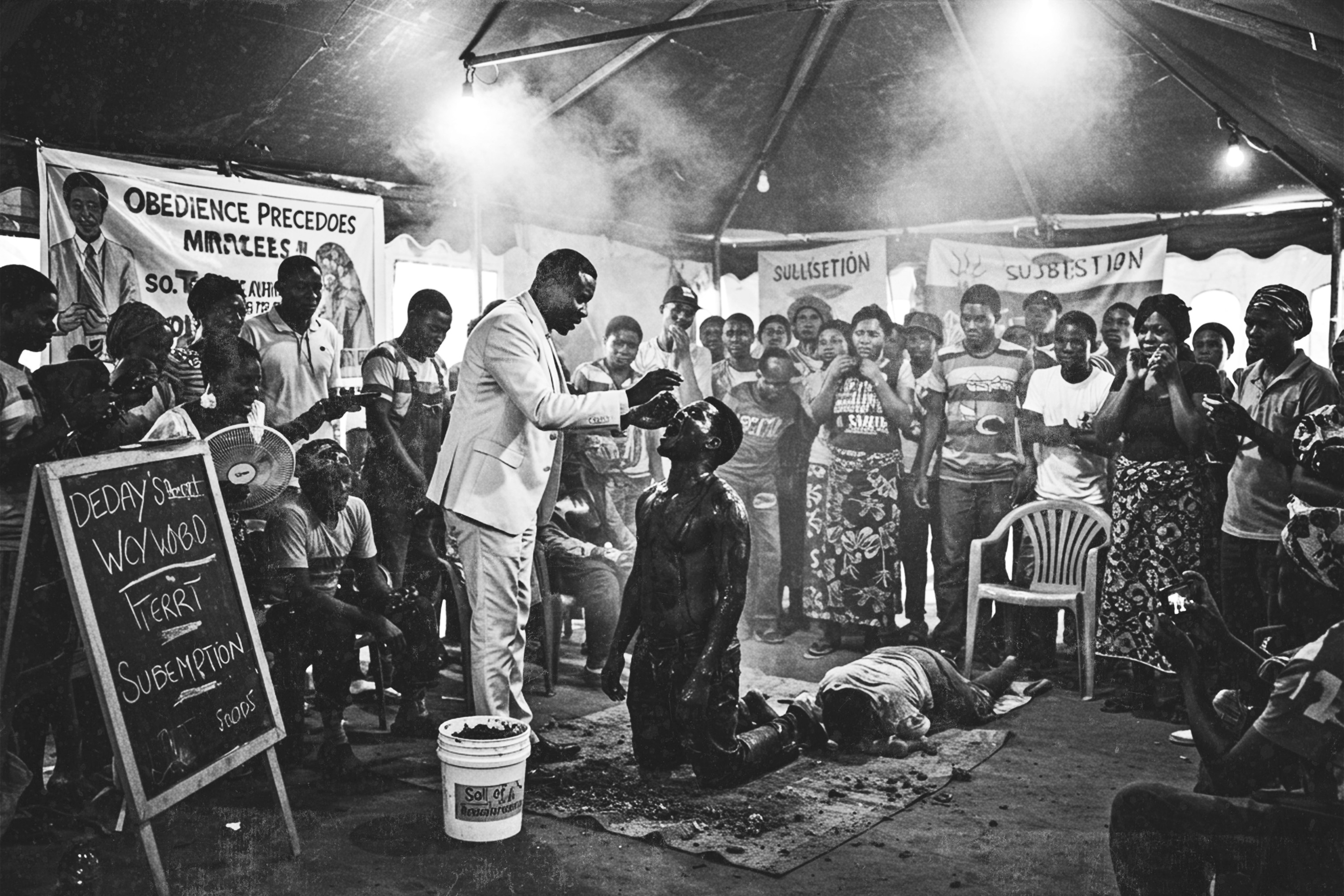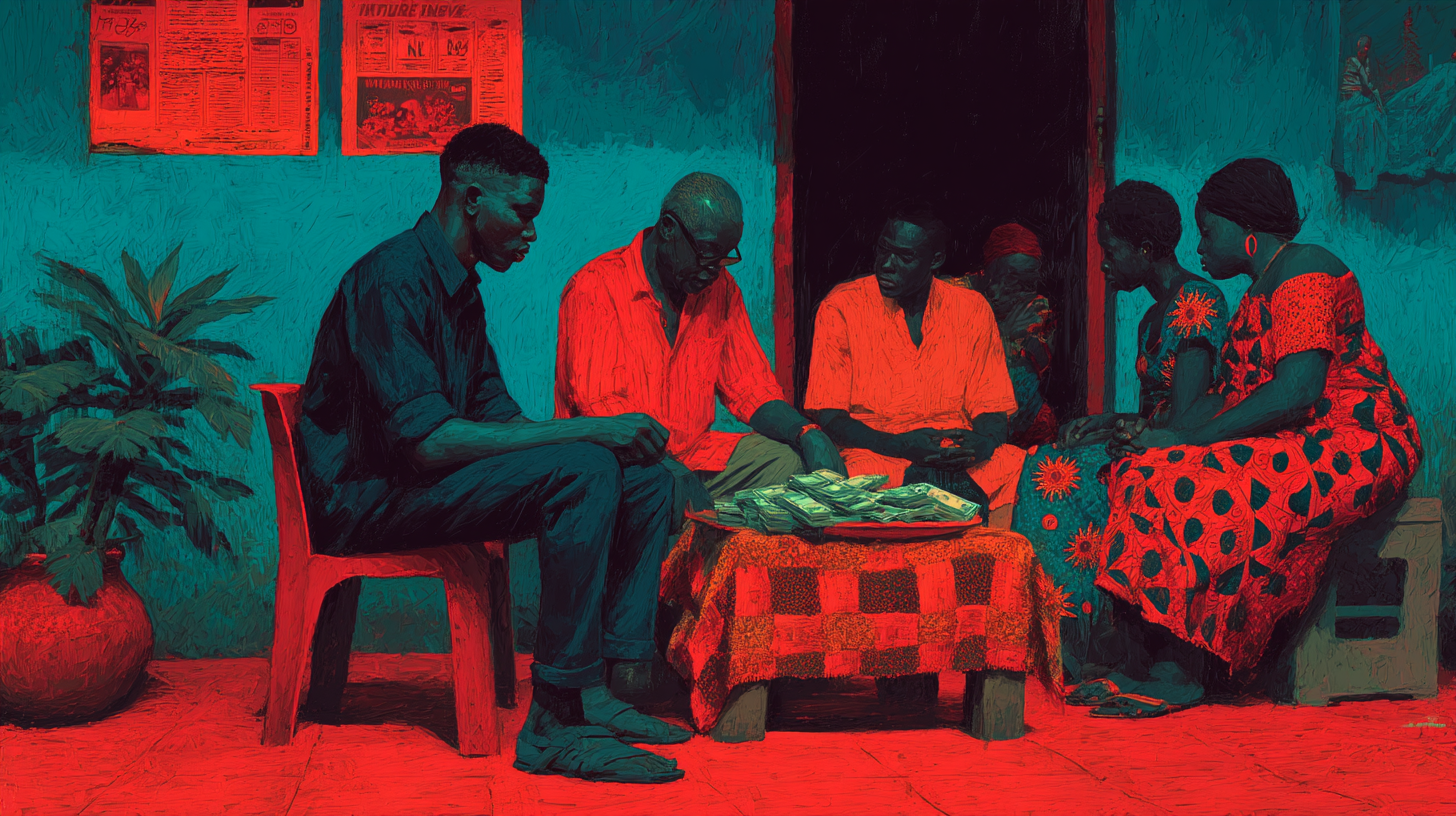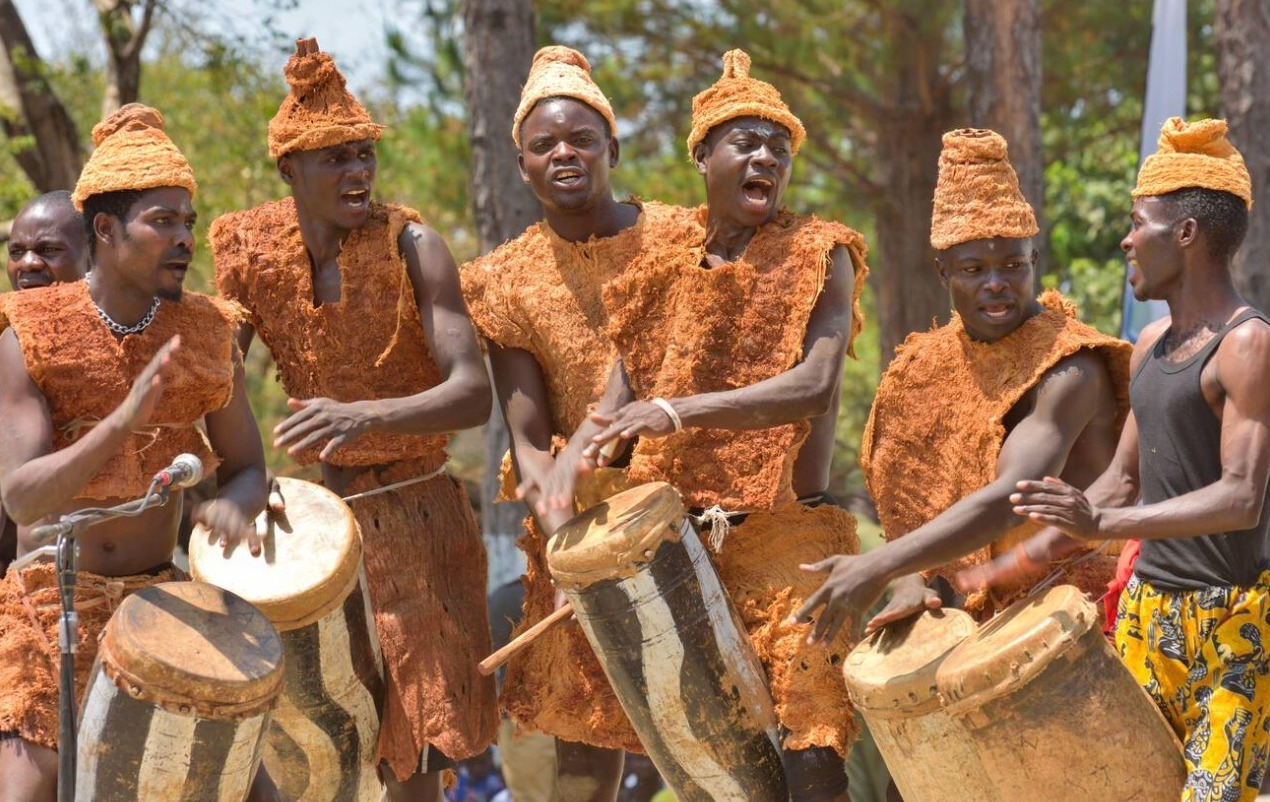Held in the shadow of Mosi-oa-Tunya (Victoria Falls), this centuries-old festival reenacts the Toka-Leya people’s legendary migration through sacred foot-washing rituals and royal processions. Bene Mukuni is a defiant celebration of identity, and visitors become witnesses to a culture that refuses to fade.
For the Toka-Leya people of southern Zambia, the Bene Mukuni Ceremony is held near the misty beauty and grandeur of Mosi-oa-Tunya (Victoria Falls). This centuries-old gathering transforms Mukuni Village into a stage where history, culture, and nature come together.
A Journey Through Time: Origins and Significance
The ceremony’s heart lies in its powerful reenactment of the Toka-Leya’s 17th-century exodus from Kola (modern-day Congo) to their present home near the Falls. Guided by Paramount Chief Mukuni Mulopwe and his sister Kaseba-Mashila(clearer of paths), the tribe travelled across large areas to settle in Zambia’s riverlands.
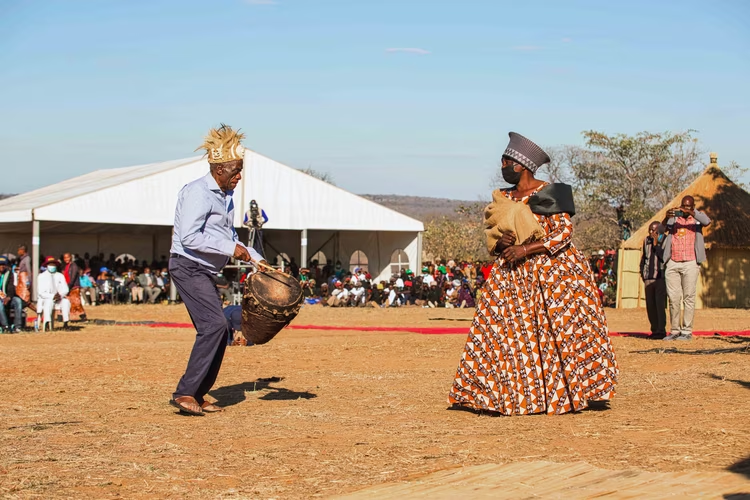
Each ritual during the 2–3-day event honours this legacy:
- Sacred Foot Washing: Using ox blood, symbolising Chief Mukuni’s choice of humility over his brother’s fatal preference for human blood.
- Ancestral Homage: Royal elders perform prayers at the Simukale Shrine, seeking blessings for future harvests and unity.
- Fire Lighting: Igniting flames that represent the enduring light of Mukuni’s reign, with ashes used to anoint attending chiefs.
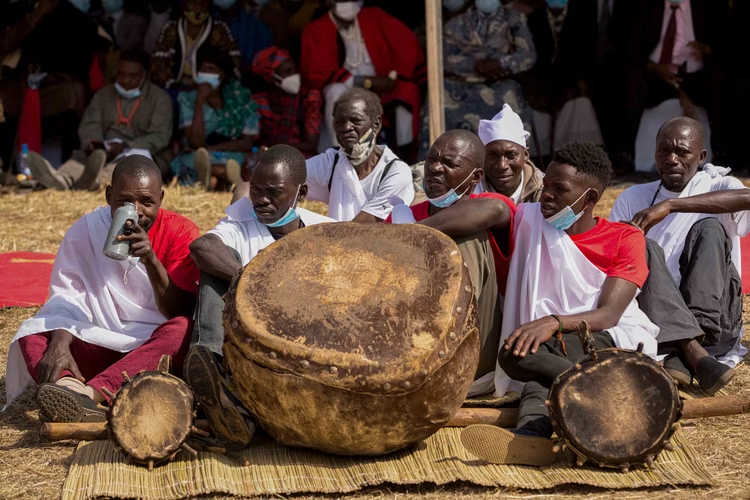
The Ceremony in Motion: Rituals and Revelries
As dawn breaks over Mukuni Village, the air thrums with traditional drums and the rhythm of Leya songs. Key experiences include:
- Makishi Dancers: Masked performers embody ancestral spirits, their movements narrating tribal myths and historical triumphs. The mesmerising dances, set against rhythmic drum beats, offer a close look into the Toka-Leya’s beliefs.
- Royal Processions: Chief Mukuni, adorned in animal-skin regalia, leads dignitaries through the village. His sister, the Bedyango (High Priestess), oversees spiritual rites, connecting the physical and ancestral worlds.
- Storytelling & Craftsmanship: Elders tell oral histories under ancient trees, while traders display beadwork, wood carvings, and woven textiles. Visitors enjoy grilled meat and nshima, tasting the essence of Toka-Leya hospitality.
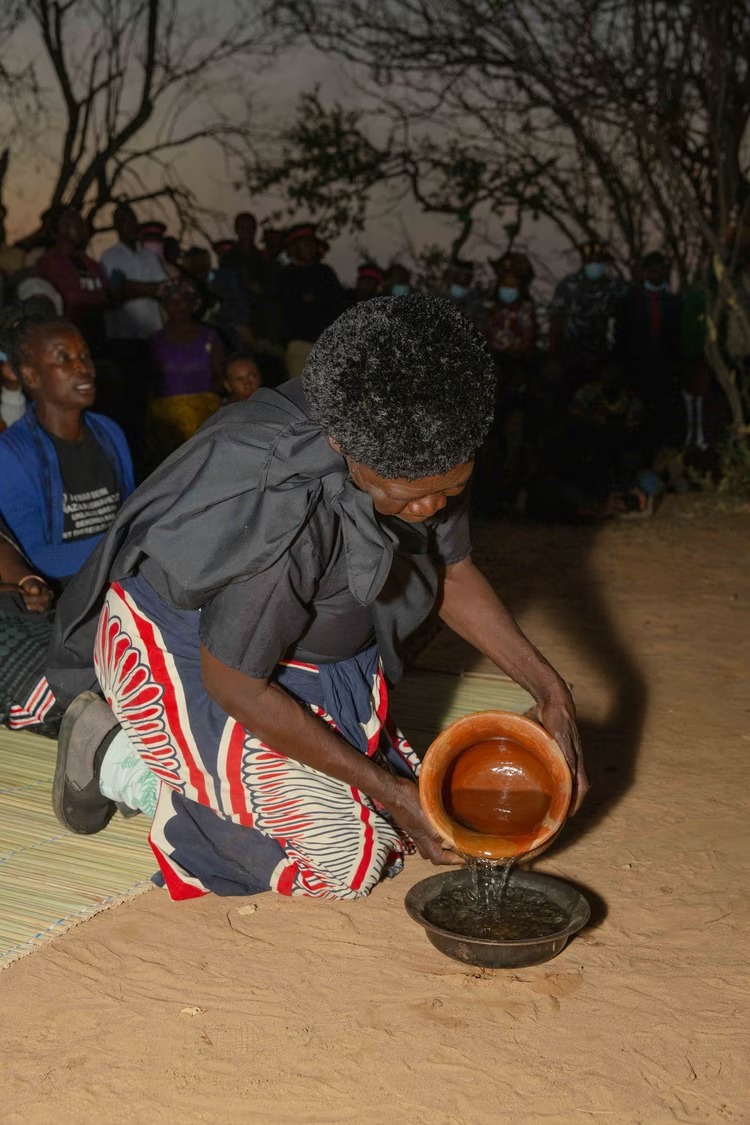
Tradition in a Changing World
While deeply rooted in heritage, Bene Mukuni works with contemporary Zambia:
- Diplomatic Spotlight: Figures like Chinese Ambassador Du Xiaohui and President Hakainde Hichilema have attended, highlighting the ceremony’s role in cultural diplomacy and national unity.
- Youth Initiation: Young men descend into the Batoka Gorge near Victoria Falls during the December Lwiindi Basilombelombe (Spray Ceremony), a rite of passage into adulthood.
- Global Dialogues: Chiefs like Canada’s Grand Chief Matthew Caan Comb have joined, comparing how native people work to preserve traditions amid modernity.
A Traveller’s Guide
For those wanting to attend:
- Timing: Confirm exact dates via Zambia’s Ministry of Tourism.
- Respectful Engagement: Observe sacred rituals quietly. Purchase crafts directly from traders, and join dances only when invited.
In an era where cultures are becoming the same everywhere, the Bene Mukuni stands as a defiant celebration of identity. As Senior Chief Munokalya Mukuni notes, opening once-private rites to outsiders is a smart way to keep tradition alive: "It reminds our youth where they’ve come from". For travellers, researchers, or the spiritually curious, this ceremony offers more than sight; it's an invitation to witness a community writing its next chapter while honouring the ink of its past.
